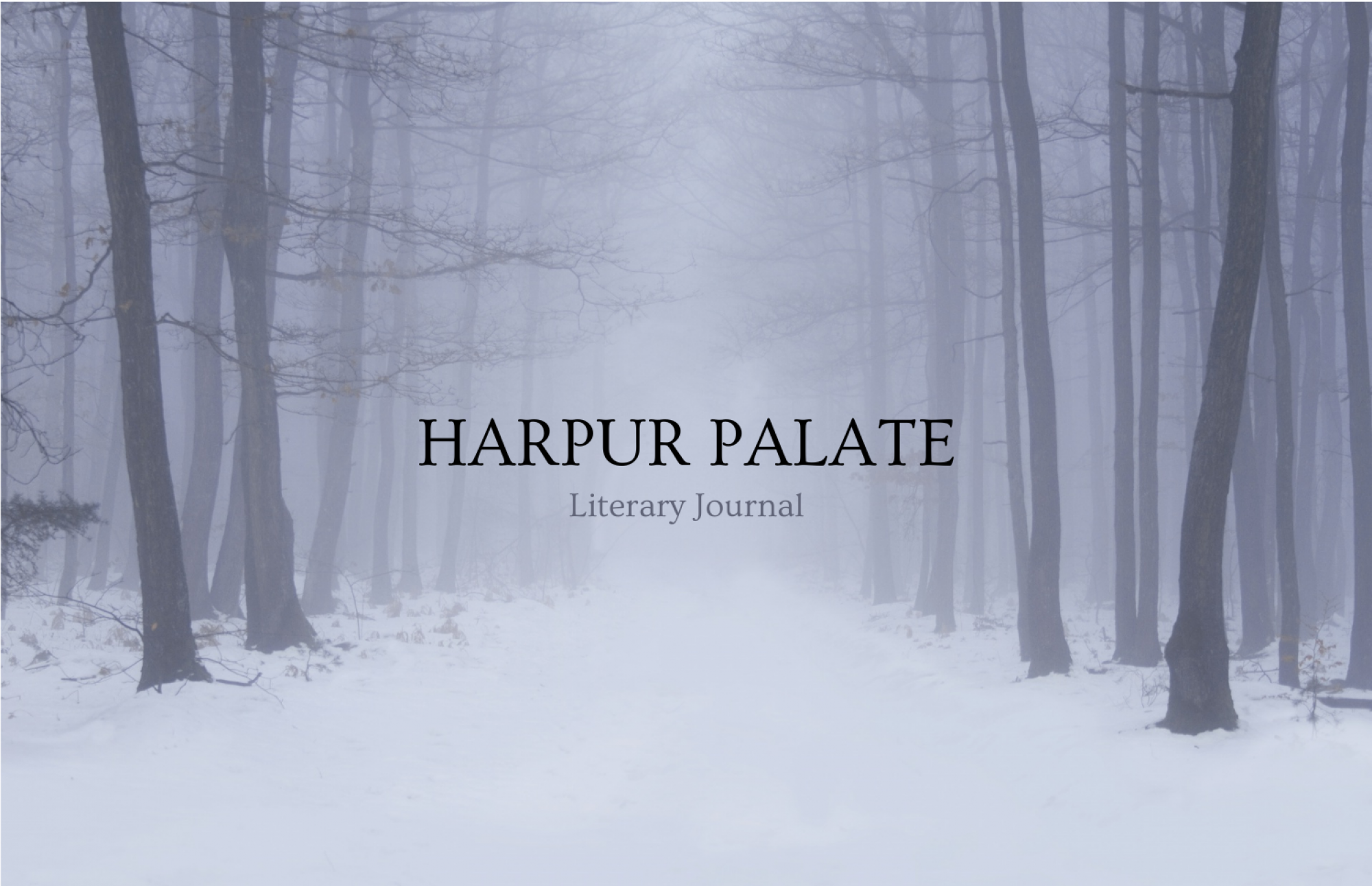Letter from the Editor
The process of putting this issue together has become a pet project for my anxiety, but also feels deeply connected to the collective worry we feel in the wake of events that seem so very much outside of our control.
I’ve been fascinated with the idea of perception for a very long time. I am interested in the distorted ways that we perceive self, and the affected ways we understand others. This idea is mirrored throughout the issue. Whether it be Anna Smetanenko’s “After the Book” which investigates how an identity is altered and shaped by the works with which it partakes, or Hallie Fogarty’s “Mirror” in which facial features are and are not constrained by the rigid boundaries delineating where identity ends and face begins.
Ali Beheler’s poem “like Orpheus, led you :: like Orpheus, turned on you” reads “I dreamed so long of relaunching,/ To see your face. The first time./ body a life line, traced again—how hard” It, to me, speaks of an inner turmoil. And so in this time when we are simultaneously individual and part of a global collective, we struggle with the act of being, or being done to; of acting or being acted upon. The lines of our life being drawn in infrastructure, capitalist oligarchy, and productive benefit all locking us into a solipsistic prison. And in isolation, the walls feel insurmountable.
So when L Mari Harris tells us that we will in fact “love harder when we’re invested in the story,” and the story is about the love developed as a teen enacts mothering with her assigned egg, and though that egg is bound for the compost pile; we feel truth in their desire to have a love so tangible so sweet that it “can be lick[ed]… from… fingers, a love [we] can taste and swallow.” We understand the desire to consume the thing we so care about if only to preserve a feeling of physical connection for mere moments longer.
There is a numbness in this process of being that resonates, an otherness to the bodies we inhabit. So, when Susan L. Leary says “I give my mouth a bath & brush its teeth. I clothe my mouth in a simple orange dress, lay it flat for ironing, then hold my mouth accountable.” We understand the desire to have control over the parts of us that seem to function beyond our control.
And so we seek out stories. Stories to make us feel again. To feel connected. To feel understood. To feel heard. To feel not numb. And when Kiana Govoni tells us that “What… upsets [her is that she doesn’t want her] mother in an eternal ground. [that she’d] prefer her sitting in comfort, chest-free under a decade’s warm nightgown, bare feet dry with experience and life, ankles crossed on the couch while she watches people get surgeries or their pimples popped on TLC.” I understand this as a thing I also want, and I feel in community.
When I trace the lines in the piece “Triad Red Contrast: Postpartum,” by Juanita Holmes, I remember pacing squares and figure eights in dark midnight hallways. Experiencing life as blurred images hovering under the comforting regularity of practiced motion, and I feel in community.
So, more than anything else, as you artists and contributors bring your experiences to us, and ask us to see you. As my editors pour through your words, as we compile, we edit, we arrange, and we check for functionality; all in the hopes that our collected archive of pieces speaks to you, our readers, in the ways that it has spoken to us. Speaking to our painful, and broken, but also to our beautiful, and joyful, and vibrant. And in this way we lift where we stand. And though we may stand in very bleak circumstances, we do not stand in these places alone.
Sincerely,
Alycia Calvert (She/Hers)
EIC Harpur Palate 2024-2025
MFA 2022
PhD Bing U 2026
